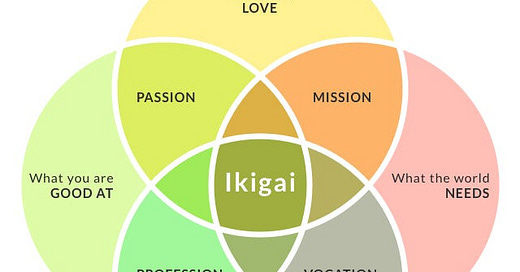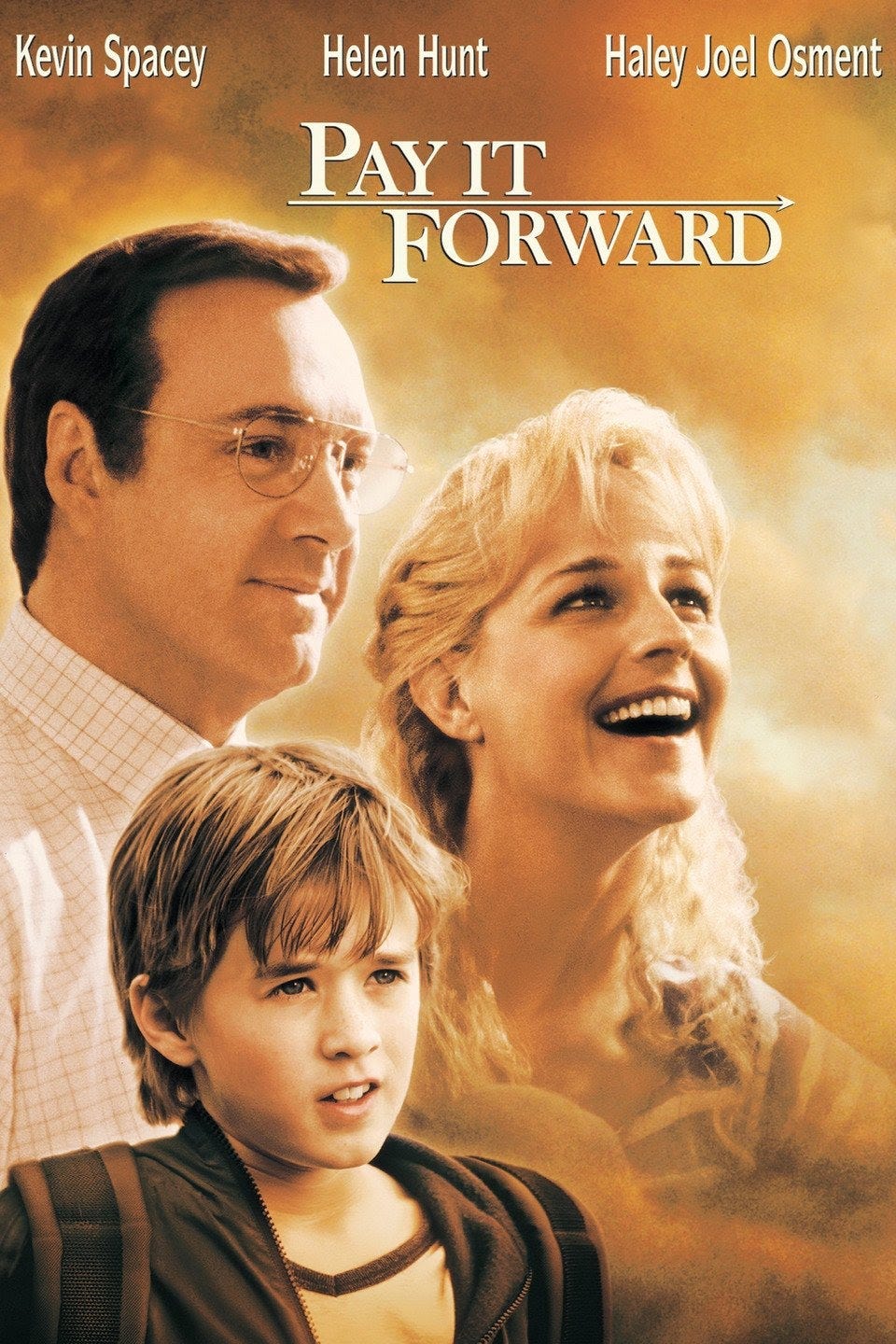Thanks for signing up! If you’re new to Think. Read. Write. Repeat. you may want to go back and get caught up on what you’ve missed. I promise, in the words of the bard, “…since brevity is the soul of wit and tediousness the limbs and outward flourishes, I will be brief.” -Shakespeare, Hamlet
Think:
During Bill Clinton’s 1992 presidential campaign, his chief political strategist, James Carville (who totally looks like Gollum) reminded campaign workers what the American people really cared about when he coined the phrase, “It’s the economy, stupid.”
Over the past few weeks in our discussion of Ikigai we have focused on the first two circles in our Venn diagram, Passion (What you love) and Purpose (what the world needs).
It would be a beautiful world if those of us who were chasing our passions could do so free from worry or want, but if you are anything like me, you need some of that sweet, sweet money in order to be a participant in the economy and to take care of the base levels of Maslow’s hierarchy of needs.
This is where it becomes easy to get trapped in what the Brits call a sticky wicket. If you are not really good at what it is you love to do, it is hard to imagine anyone is going to pay you for it, or at least pay you well enough to allow you to do it full time. And if we learned anything from Malcolm Gladwell it is that if you want to get really good at something you need to do it a lot, (like 10,000 hours a lot).
So, it’s easy to see how our Ikigi Venn diagram can begin to look like this:
So, how do we get our get our payday circle equal to our passion/purpose circles?
IT’S THE PROFICIENCY, STUPID.
To start we need to get real. Assess the skills needed to be truly proficient in the area you are passionate about, then evaluate your current level of proficiency. The gap is what you need to overcome.
Then break the skill or skills down into their component parts, and look for ways to improve.
I propose that there are two other ways to view the Payday circle:
Both of these can be represented by movies starring canceled actors:
Payback: One of the benefits of having several Massive Transformative Purposes (MTPs) is that perhaps they all don’t need to be lucrative. Use one to pay back, especially if you can find a way to do it while honing skills in your other MTPs.
I have been researching opportunities to use my writing MTP (Write Things That are Meaningful) to advance nature-related causes I believe in, (my Keep Wild Places and Things Wild MTP) .
While I may not be paid, I gain value for the opportunity to explore wild spaces and I get to payback by helping ensure they remain that way.
Pay it Forward: Find a way to immerse yourself in your passion. Do it for free, volunteer, contact people in the industry, and ask to speak to them.
A great organization, The Honor Foundation, provides training, education, and assistance to retiring special operations veterans.
One of the exercises that they do is called ‘fifty cups of coffee.’ Each veteran is expected to contact someone in their desired field and invite them to a cup of coffee. At the conclusion of the coffee, they ask for other recommended connections, and in so doing their webs of curiosity and connection expand.
I have always been reluctant to reach out to ask for unsolicited assistance until a good friend reminded me of two truths:
1. You miss 100% of the shots you don’t take.
2. Most people love it when they are asked for advice. It’s true. I recently had the opportunity to have a cup of coffee with a veteran and discuss writing. It was an amazing opportunity for me, and I was honored to be asked.
Take a chance. Expand your circle. Get curious, learn, try, fail, and try some more.
Find ways to build proficiency, connections, and experience until you can get paid for your passion.
Building capability, capacity, and proficiency are hard. It requires sacrifice which we will talk about next week, but the wheel of knowledge turns easier once you grease the skids and get it moving.
Read: With Winning in Mind by Lanny Bassham
The person who coined the saying, “Don’t judge a book by its cover” was obviously referring to this book. There is a lot going on here, and none of it is good, but believe me, what is on the inside is worth it. When you begin to work to master the component skills necessary to achieve your MTP, this book can help.
On another note, thanks to friends at Hone the Edge, I am apparently an Amazon influencer of sorts? If you buy this book after clicking on the image, I get a buck.
I would still prefer you buy from an independent bookstore if you can, but this book may be tough to find.
Last week I talked about journaling. There are just as many types of journaling as there are journalers: Gratitude journaling, bullet journaling, travel journaling, reflective journaling, morning pages, etc.
You will need to determine which style works for you, but the easiest way to do that is by beginning. Just write some stuff down, the things you are thinking about, things you would like to do, things you are curious about, and the answers that you find. I am reading a biography of Leonardo da Vinci and found it interesting that among his codexes were to-do lists containing the following items:
Learn the measurement of Milan and its suburbs
Get the master of arithmetic to show you how to square a triangle
Get the measurements of the sun promised me by Maestro Francese
Describe the tongue of the woodpecker
This is a great reminder to get and stay curious.
One method I have become a fan of is habit tracking. You can buy a purpose-built habit tracker, or you can simply draw a chart out in your notebook:
I’ve started experimenting with using an excel spreadsheet to track habits and the metrics I find most useful, but when I started, I simply created a chart each month and x’ed off my successes.
Two days in a row is a streak, and you won’t want to break it.
I find that after about two months I have either turned the habit into part of my daily routine and no longer needed to track it, or I was doing it so infrequently that I needed to reevaluate my ‘why’.
Repeat: From those who said it best:
“Do the difficult things while they are easy and the great things while they are small.” - Lao Tzu
“We all want progress, but if you're on the wrong road, progress means doing an about-turn and walking back to the right road; in that case, the man who turns back soonest is the most progressive.” – C.S. Lewis
“Great things are done by a series of small things brought together.” — Vincent van Gogh
“Amateurs look for inspiration, the rest of us just get up and go to work.” — Chuck Close
“Have no fear of perfection, you’ll never reach it.” — Salvador Dalí
Thanks for reading. If you enjoyed it, please share it with a friend!













